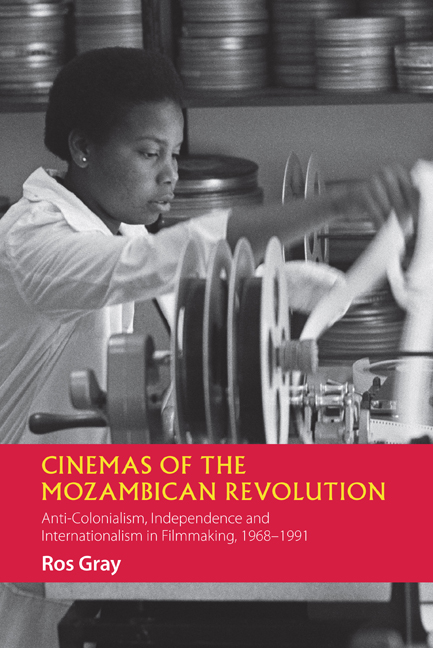 Cinemas of the Mozambican Revolution
Cinemas of the Mozambican Revolution I began this book by recounting my first visit in 2004 to the building that housed the INC and the way in which Gabriel Mondlane evoked a collective experience of cinema that persisted in ruins. Later I discovered that some months earlier the Portuguese filmmaker Margarida Cardoso was similarly shown around the INC building by Mondlane when she was in Mozambique for the shooting of her fiction film A Costa dos Murmúrios ‘Murmuring Coast’ (2004), one of the first feature films in some twenty years to address the trauma of the colonial wars that Portugal fought in Africa. Moved by the state of the film archive and the dedication of the remaining INC staff and filmmakers still active in Mozambique, Cardoso made the documentary Kuxa Kanema: The Birth of Cinema (2004), which told the story of the INC through archival footage and interviews with some of the key protagonists. The documentary played an important role in drawing international attention to the recent history of Mozambican cinema and to a unique body of cinematic work that was in danger of decay. Critically, too, Kuxa Kanema: The Birth of Cinema conveys a strong sense that the filmmakers who built the INC recognised that they had been involved in a project that was historically significant, but which was at risk of being lost to the world. When Isabel Noronha is interviewed in the documentary, she describes the building of the INC as being ‘a thing that exists without existing’. Over images of the film reels on the shelves at the INC, Noronha says: ‘everything that was made was not destroyed but also does not exist.’ Suspended in a state of limbo, the reels of film and the ruins of the INC become a synecdoche for the political condition of the entire nation, the promise of its revolution still present but foreclosed. The documentary concludes with images of Maputo streets at night, the flickering lights in the windows of apartment blocks signalling the dispersal of the collective experience of cinema, a nation fragmented and privatised by an individualist consumerism symbolised by the television screen.
To save this book to your Kindle, first ensure [email protected] is added to your Approved Personal Document E-mail List under your Personal Document Settings on the Manage Your Content and Devices page of your Amazon account. Then enter the ‘name’ part of your Kindle email address below. Find out more about saving to your Kindle.
Note you can select to save to either the @free.kindle.com or @kindle.com variations. ‘@free.kindle.com’ emails are free but can only be saved to your device when it is connected to wi-fi. ‘@kindle.com’ emails can be delivered even when you are not connected to wi-fi, but note that service fees apply.
Find out more about the Kindle Personal Document Service.
To save content items to your account, please confirm that you agree to abide by our usage policies. If this is the first time you use this feature, you will be asked to authorise Cambridge Core to connect with your account. Find out more about saving content to Dropbox.
To save content items to your account, please confirm that you agree to abide by our usage policies. If this is the first time you use this feature, you will be asked to authorise Cambridge Core to connect with your account. Find out more about saving content to Google Drive.